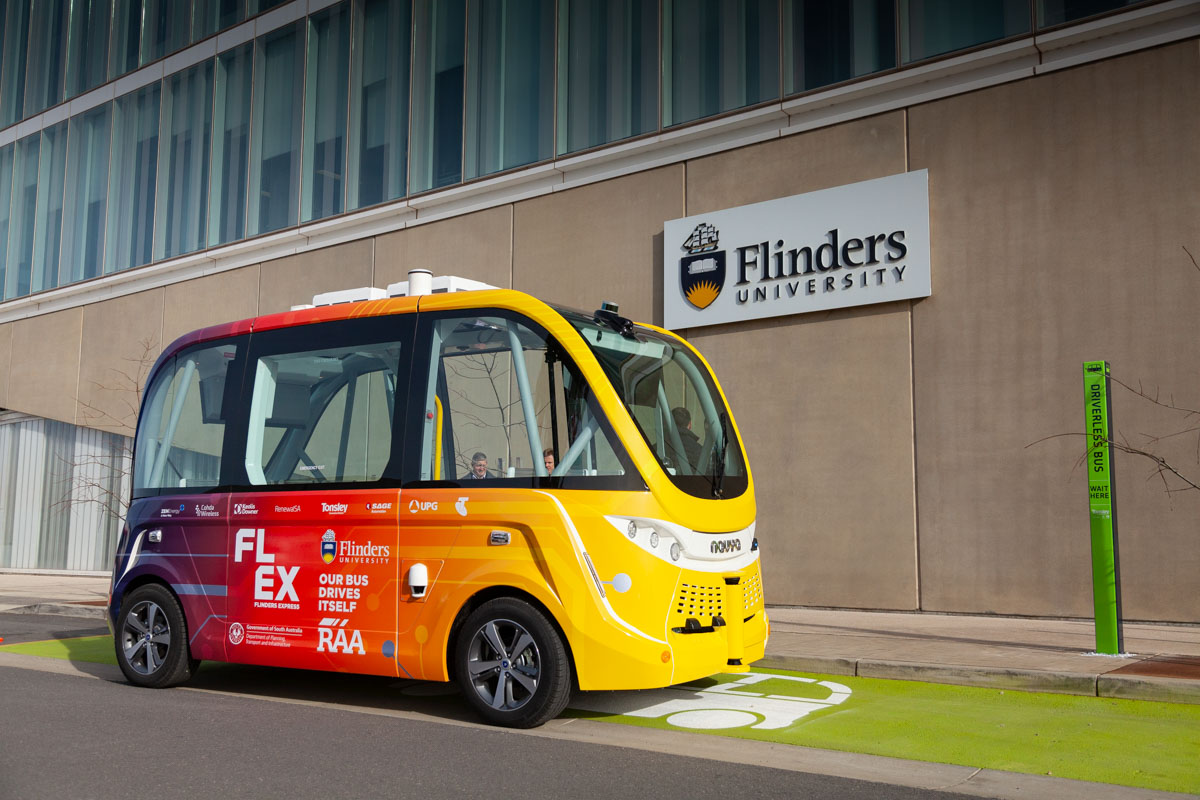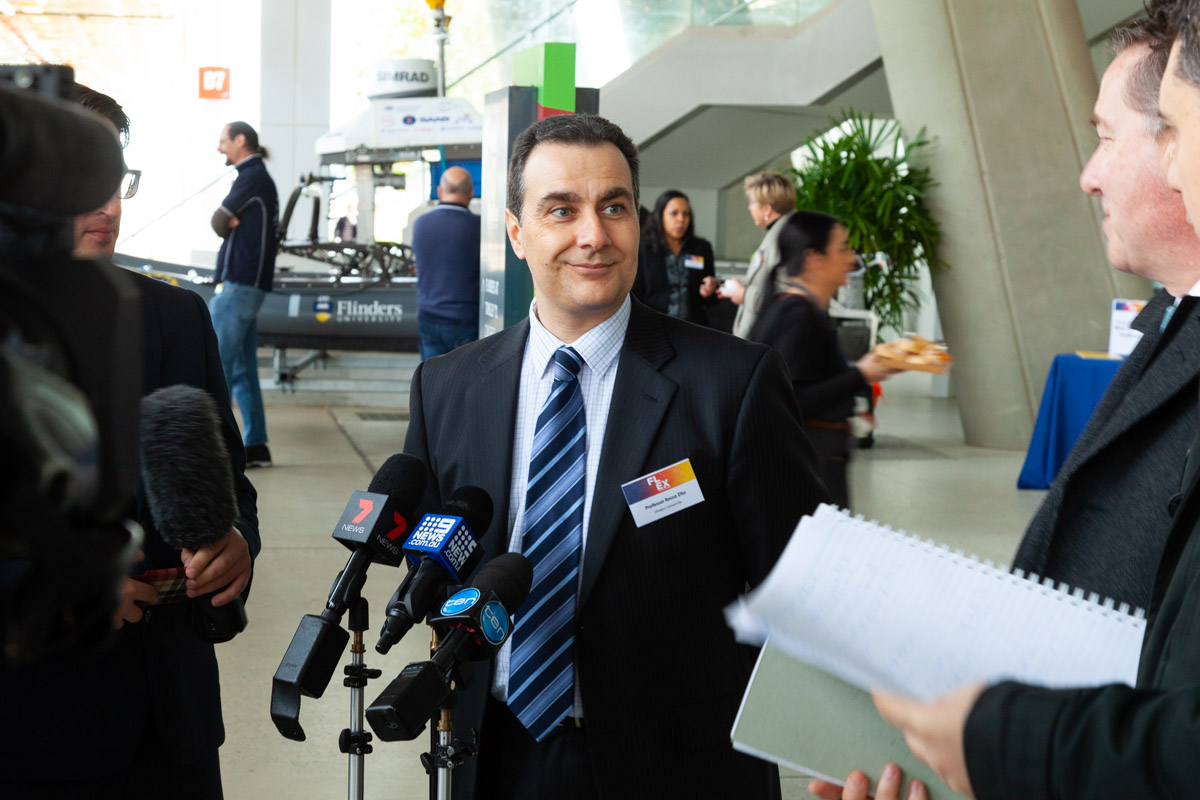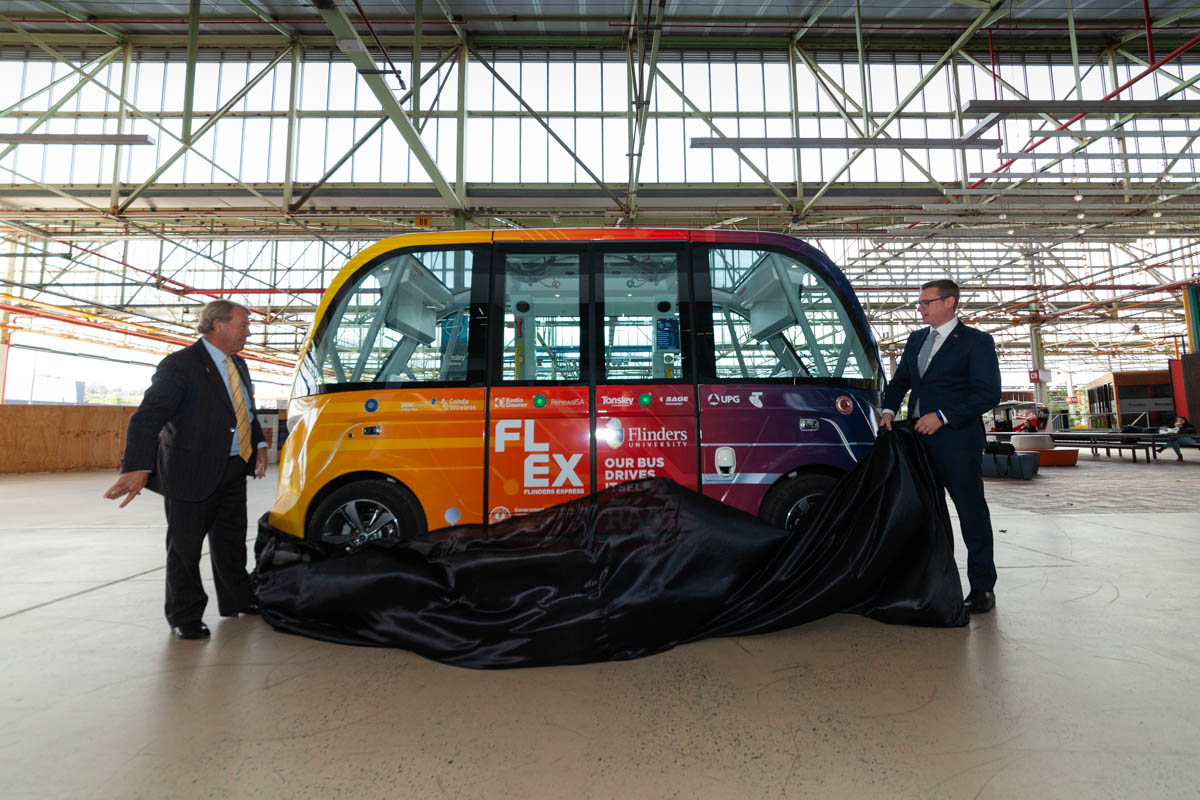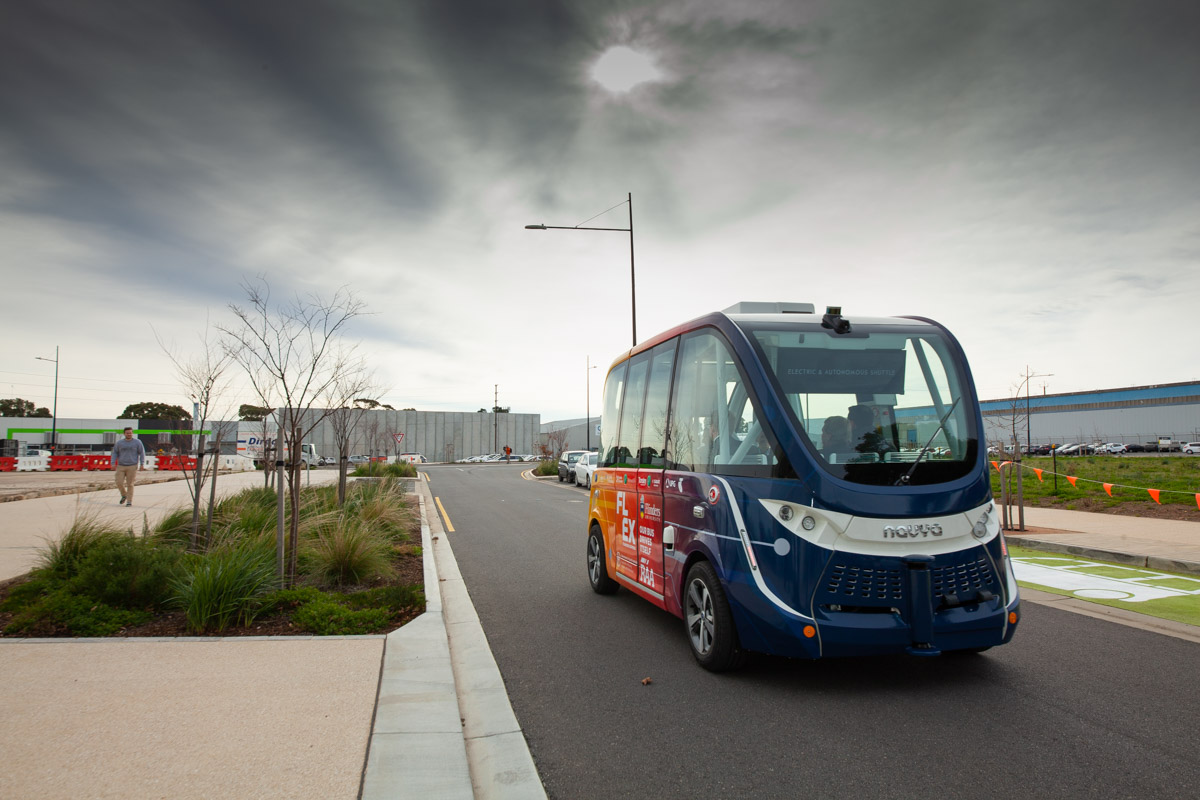
A driverless public electric shuttle will start operating around the Tonsley Innovation District this week as part of a five-year trial of autonomous vehicle technology set to encompass public roads in South Australia for the first time.
Funded by the State Government and industry partners, the Flinders Express (or ‘FLEX’) will initially provide ‘first mile–last mile’ shuttle services between the nearby Clovelly Park Train Station and Tonsley’s Main Assembly Building (MAB), then connections to bus stops on the main South Road and businesses within the Tonsley precinct.
Within a year the shuttle will run to the Flinders Medical Centre and the University’s Bedford Park campus before using main arterial roads around the entire Bedford Park precinct.
Flinders University Head of Civil Engineering Professor Rocco Zito says commuters arriving by traditional bus or train to Tonsley can book a ride online on the Flinders website.
Free rides can be booked on week days from Monday to Friday between 10am and 2pm during the first stage of the trials.
“Demonstrations and trials of these driverless vehicles that involve the community are a really good way of building acceptance of this type of new technology,” says Professor Zito.
“Our aim is not to prove the technology but rather expose the public to this new type of transport service and learn from their responses and reactions to help driverless vehicles gain general acceptance.”

The three-stage, $4 million driverless shuttle project – for which Flinders University, the RAA and Department of Planning, Transport and Infrastructure (DPTI) have partnered with industry supporters Cohda Wireless, Renewal SA, SAGE Automation, Telstra, UPG, ZenEnergy and public transport operator Keolis Downer – last year received $1 million from the State Government’s $10 million Future Mobility Lab Fund.

The French-designed Navya Arma electric shuttle can carry up to 15 passengers at speeds of up to 40 km per hour, but will travel up to 30 km per hour during the trial. FLEX will be managed by an on-board chaperone informing users of the technology and ensuring safety.
The SA Minister for Transport, the Hon Stephan Knoll, will attend the official launch today (Tuesday 19 June 2018) and be one of the first people to have a ride on FLEX.

Members of the public can book a ride from Wednesday June 20, with online bookings available via the Flinders University website. Further queries email flex@flinders.edu.au
“This research project is a perfect example of how universities, government and industry can collaborate to provide enhanced mobility services that can really make a difference to people’s lives,” Professor Zito says.
In one of Australia’s leading driverless projects, the vehicle will be docked within a six bay solar recharge garage to be constructed within two months near the Mitsubishi Administration building. The solar garage will also be available to the public wanting to recharge their own electric vehicles for free.
Transport operator Keolis Downer is involved with the Flinders project, having collaborated on the Navya autonomous shuttle projects in Victoria and other cities around the world including Paris, Las Vegas and Montreal.
“We are excited to be part of this trial with Flinders University,” says Keolis Downer CEO David Franks. “Autonomous shuttles will change the way people travel and by exploring how these vehicles can complement existing transport solutions, we aim to encourage the use of public transport and create more liveable and sustainable environments for communities,” Mr Franks says.
Many existing automobile manufacturers and new companies are expected to have driverless electric car models on the road by 2020, with the world market for autonomous electronic vehicles expected to be worth US$7 billion by 2050.

